
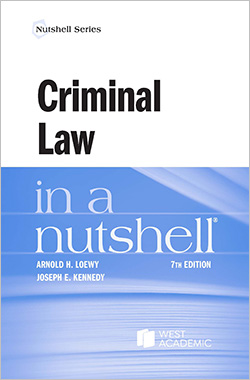 Criminal Law in a Nutshell, 7th
by
This guide helps you gain an overview of and develop perspective on the area of criminal law. It is organized into eight sections for quick reference. Expert discussion explores punishment, specific crimes, and the ingredients of a crime such as mens rea and actus reus. Other topics covered include special defenses, the burden of proof, and inchoate and group criminality. It also reflects on the limitations of criminal law.
Criminal Law in a Nutshell, 7th
by
This guide helps you gain an overview of and develop perspective on the area of criminal law. It is organized into eight sections for quick reference. Expert discussion explores punishment, specific crimes, and the ingredients of a crime such as mens rea and actus reus. Other topics covered include special defenses, the burden of proof, and inchoate and group criminality. It also reflects on the limitations of criminal law.
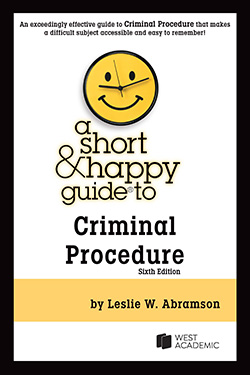 A Short & Happy Guide to Criminal Procedure
by
This Short and Happy Guide makes the law about police practices and criminal trial proceedings accessible and easy to remember. Learn the key points of search and seizure law, police interrogation, the right to counsel, the exclusionary rule, pretrial release, grand jury investigations, joinder, criminal discovery, plea bargaining, jury trials, pretrial publicity, double jeopardy, appeals, and post-conviction standards. Dominate your classes in Criminal Procedure and your skills courses in Trial Advocacy!
A Short & Happy Guide to Criminal Procedure
by
This Short and Happy Guide makes the law about police practices and criminal trial proceedings accessible and easy to remember. Learn the key points of search and seizure law, police interrogation, the right to counsel, the exclusionary rule, pretrial release, grand jury investigations, joinder, criminal discovery, plea bargaining, jury trials, pretrial publicity, double jeopardy, appeals, and post-conviction standards. Dominate your classes in Criminal Procedure and your skills courses in Trial Advocacy!


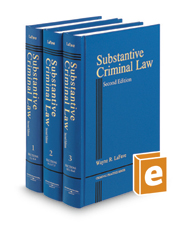 Substantive Criminal Law
by
Substantive Criminal Law
by


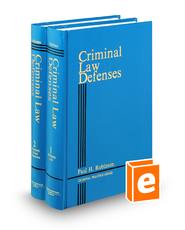 Criminal Law Defenses
by
Criminal Law Defenses
by
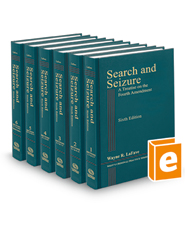 Search and Seizure
by
v. 1. The exclusionary rule and other remedies -- Protected areas and interests -- v. 2. Probable cause -- Search warrants -- v. 3. Seizure and search of persons and personal effects -- Entry and search of premises -- Search and seizure of vehicles -- v. 4. Consent searches -- Stop and frisk and similar lesser intrusions -- v. 5. Inspections and regulatory searches -- v. 6. Administration of the exclusionary rule
Search and Seizure
by
v. 1. The exclusionary rule and other remedies -- Protected areas and interests -- v. 2. Probable cause -- Search warrants -- v. 3. Seizure and search of persons and personal effects -- Entry and search of premises -- Search and seizure of vehicles -- v. 4. Consent searches -- Stop and frisk and similar lesser intrusions -- v. 5. Inspections and regulatory searches -- v. 6. Administration of the exclusionary rule
 Wharton's criminal procedure
Wharton's criminal procedure
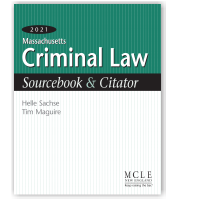 Massachusetts criminal law sourcebook & citator
This is available online from MCLE Online Pass. Product Description: A wide body of frequently-needed information organized into one resource. Both prosecutors and defense attorneys will find this popular publication saves valuable time when preparing for a trial or when looking for a quick reference. Enjoy easy access to key elements of particular crimes; what the Commonwealth needs to prove to support its case; distinctions between related crimes; the lesser included offense in a given crime; available defenses; procedural requirements; key evidentiary issues; penalties for particular crimes; and sentencing options.
Massachusetts criminal law sourcebook & citator
This is available online from MCLE Online Pass. Product Description: A wide body of frequently-needed information organized into one resource. Both prosecutors and defense attorneys will find this popular publication saves valuable time when preparing for a trial or when looking for a quick reference. Enjoy easy access to key elements of particular crimes; what the Commonwealth needs to prove to support its case; distinctions between related crimes; the lesser included offense in a given crime; available defenses; procedural requirements; key evidentiary issues; penalties for particular crimes; and sentencing options.
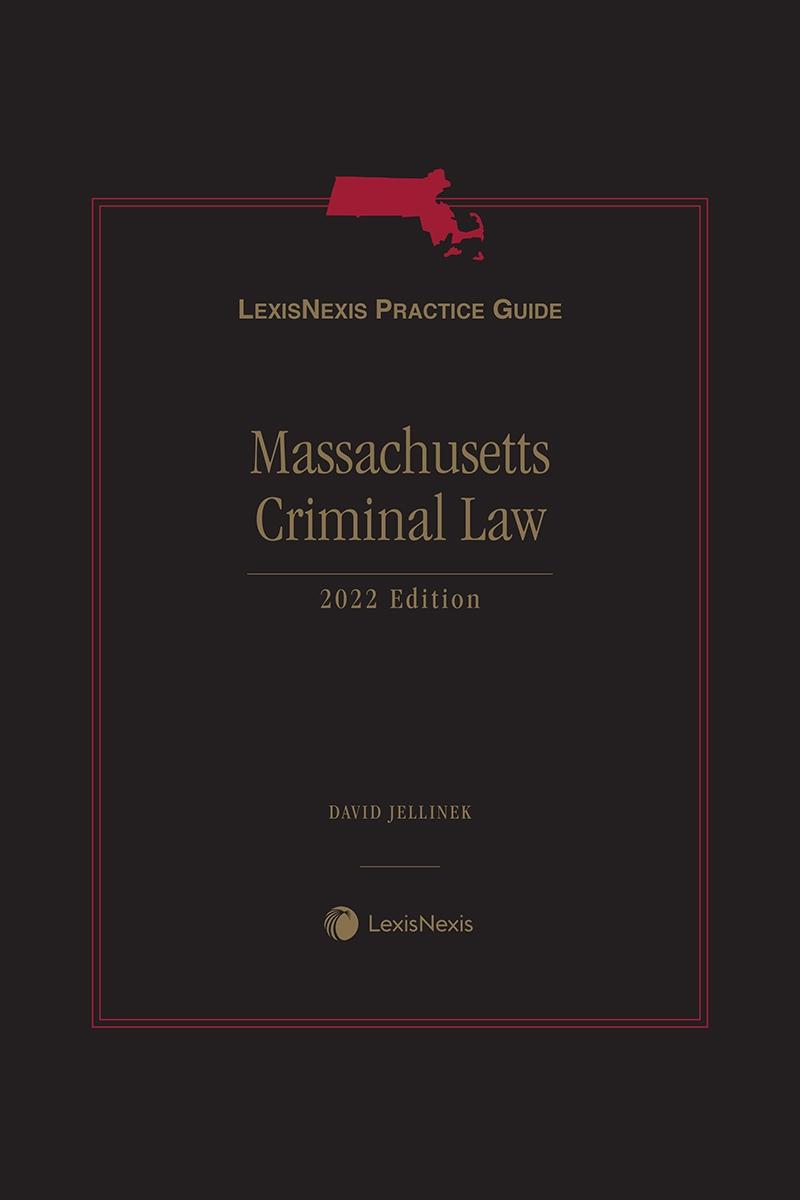 Fundamental Principles of Massachusetts Criminal Law
by
Fundamental Principles of Massachusetts Criminal Law
by
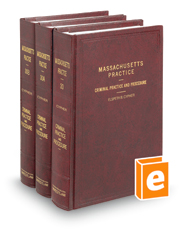 Criminal practice and procedure--Massachusetts practice series
Criminal practice and procedure--Massachusetts practice series
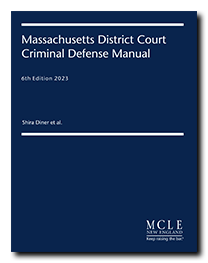 Massachusetts District Court Criminal Defense Manual
by
Massachusetts District Court Criminal Defense Manual
by
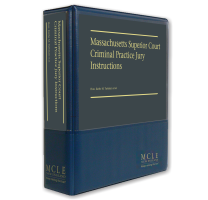 Massachusetts Superior Court Criminal Practice Jury Instructions
by
Massachusetts Superior Court Criminal Practice Jury Instructions
by
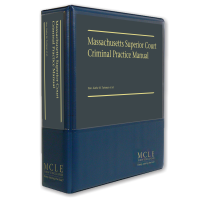 Massachusetts Superior Court Criminal Practice Manual
by
Massachusetts Superior Court Criminal Practice Manual
by
 Massachusetts E-discovery & evidence : preservation through trial
by
Massachusetts E-discovery & evidence : preservation through trial
by
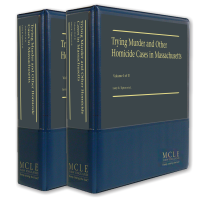 Trying Murder and Other Homicide Cases in Massachusetts
by
Trying Murder and Other Homicide Cases in Massachusetts
by

Circulation Desk - 617-573-8177 - law_circulation@suffolk.edu
Research Desk - 617-573-8516 - lawref@suffolk.edu